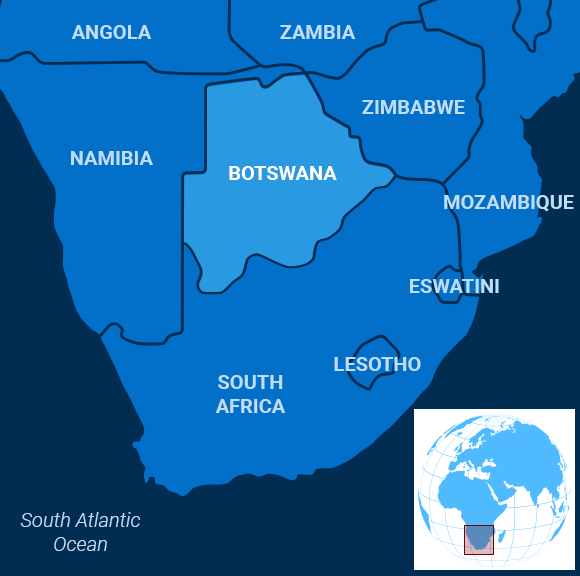BOTSWANA

Politics & Pachyderms
Approximately 450,000 elephants roam Africa. Poachers kill around 30,000 annually.
Do the math.
At that rate of illegal hunting, the days of the world’s largest land animal are numbered.
So one might question the optics of Botswanan President Mokgweetsi Masisi giving footstools made from elephant feet to his counterparts from Namibia, Zambia and Zimbabwe early last month at a meeting to discuss how to save the animals, the BBC reported.
The presidents’ plans might also surprise many. Along with South African leaders, they want to lift their countries’ bans on hunting elephants so they might sell ivory to raise money for conservation projects while giving local communities leeway to deal with animals that sometimes ruin crops and pose dangers to families.
Last month, Masisi lifted Botswana’s five-year ban on hunting the pachyderms. The move shocked animal rights advocates because they have long considered Botswana, where one-third of Africa’s elephants live, a conservation success story. “The whole world is turning away from hunting,” Kenyan ecologist Paula Kahumbu said in an interview with the Guardian. “It is increasingly seen as an archaic practice.”
Defenders of the policy portrayed those critics as naïve.
“By sacrificing 700 elephants per year we’re likely going to save more,” Botswana-based wildlife veterinarian Erik Verreynne toldthe New York Times.
Verreynne might have a point. Poaching is closely correlated to poverty and corruption, according to National Geographic. Crafting policies that help officials exert control over elephant hunting might help address some of the social ills that give rise to it in the first place.
But the same studies cited in National Geographic also suggested that law enforcement was usually not a deterrent to poaching. In other words, rangers either didn’t stop poaching or they were complicit in it. If authorities can’t tackle illegal hunting now, will they be able to enforce regulations on legal hunting?
That said, elephant poaching in general is in decline, according to independent analysts, reported the Press Association, a British news agency.
Politics might be a better lens for considering this issue.
Botswana holds a general election in October. Lawmakers then electa new president. Given how lifting the ban is based on a plethora of myths about elephant numbers, Masisi’s decision was likely designed to curry favor with rural voters, argued economist Ross Harvey in the Daily Maverick, a South African online newspaper.
If elephants could vote, would Masisi change his mind? He just might if he visited the elephant (and rhino) orphanage operated by the Sheldrick Wildlife Trust near Nairobi, Kenya. Here, most visitors are visibly moved by the gentle young elephants that still mourn their parents – killed by poachers.
No comments:
Post a Comment